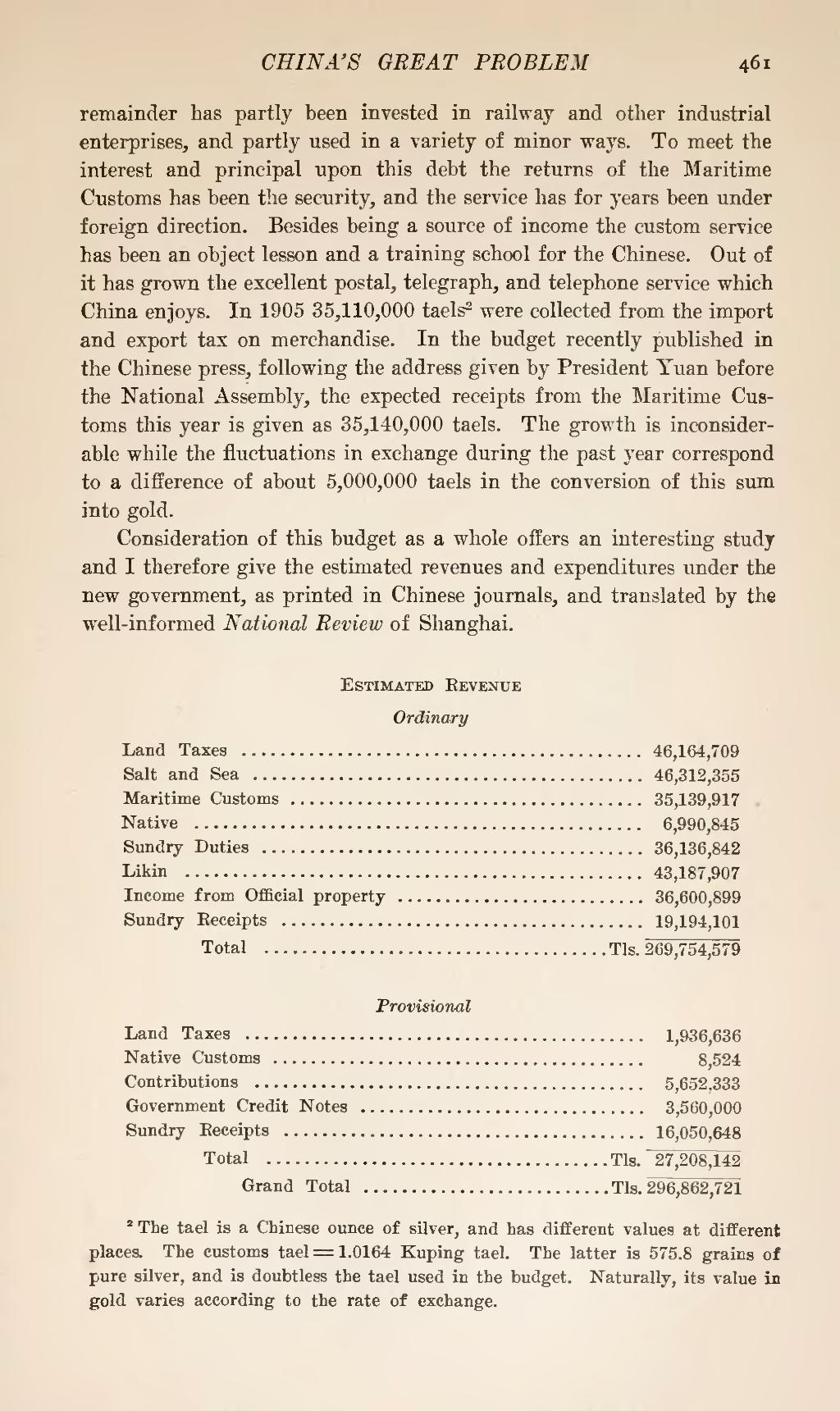remainder has partly been invested in railway and other industrial enterprises, and partly used in a variety of minor ways. To meet the interest and principal upon this debt the returns of the Maritime Customs has been the security, and the service has for years been under foreign direction. Besides being a source of income the custom service has been an object lesson and a training school for the Chinese. Out of it has grown the excellent postal, telegraph, and telephone service which China enjoys. In 1905 35,110,000 taels[1] were collected from the import and export tax on merchandise. In the budget recently published in the Chinese press, following the address given by President Yuan before the National Assembly, the expected receipts from the Maritime Customs this year is given as 35,140,000 taels. The growth is inconsiderable while the fluctuations in exchange during the past year correspond to a difference of about 5,000,000 taels in the conversion of this sum into gold.
Consideration of this budget as a whole offers an interesting study and I therefore give the estimated revenues and expenditures under the new government, as printed in Chinese journals, and translated by the well-informed National Review of Shanghai.
Estimated Revenue
Ordinary
| Land Taxes | 46,164,709 |
| Salt and Sea | 46,312,355 |
| Maritime Customs | 35,139,917 |
| Native | 6,990,845 |
| Sundry Duties | 36,136,842 |
| Likin | 43,187,907 |
| Income from Official property | 36,600,899 |
| Sundry Receipts | 19,194,101 |
| ————— | |
| Total | Tls. 269,754,579 |
Provisional
| Land Taxes | 1,936,636 |
| Native Customs | 8,524 |
| Contributions | 5,652,333 |
| Government Credit Notes | 3,560,000 |
| Sundry Receipts | 16,050,648 |
| ————— | |
| Total | Tls. 27,208,142 |
| —————— | |
| Grand Total | Tls. 296,862,721 |
- ↑ The tael is a Chinese ounce of silver, and has different values at different places. The customs tael = 1.0164 Kuping tael. The latter is 575.8 grains of pure silver, and is doubtless the tael used in the budget. Naturally, its value in gold varies according to the rate of exchange.
